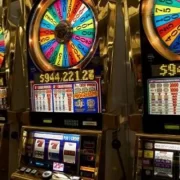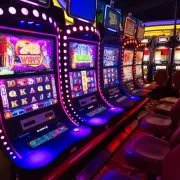The concept of riverboat casinos dates back to the early 19th century when gambling was a popular pastime among sailors and merchants. The Mississippi River was a major trade route, and steamboats were the primary mode of transportation. As a result, entrepreneurs began outfitting steamboats with gambling equipment, and the first riverboat casino was born.
During the 1800s, riverboat casinos were a common sight on the Mississippi and Ohio Rivers. These casinos offered a variety of games such as blackjack, poker, and roulette, and they were a popular attraction for locals and tourists alike. However, the rise of railroads and the decline of steamboats led to the decline of riverboat casinos.
In the 20th century, riverboat casinos made a comeback, this time in states where gambling was illegal. In the 1980s, Iowa became the first state to legalize riverboat casinos, and other states soon followed suit. Today, many states have riverboat casinos, including Illinois, Indiana, Louisiana, and Mississippi.
The Influence of Riverboat Casinos

Riverboat casinos have had a significant impact on the economy and culture of the regions where they operate. They provide jobs for thousands of people, and they generate millions of dollars in revenue for local governments. In addition, riverboat casinos have become a popular tourist attraction, drawing visitors from all over the world.
However, riverboat casinos have also been the subject of controversy. Some people argue that they contribute to problem gambling and other social issues. Others contend that they are a legitimate form of entertainment and that the benefits outweigh the drawbacks.
The Future of Riverboat Casinos
The future of riverboat casinos is uncertain. As more states legalize gambling, the demand for riverboat casinos may decline. In addition, the rise of online gambling has created new competition for traditional casinos, including riverboat casinos.
However, many riverboat casinos are adapting to these changes by offering new and innovative experiences. Some riverboat casinos have added amenities such as spas and fine dining restaurants, while others have begun offering sports betting and other forms of gambling.
Overall, the history and influence of riverboat casinos is a fascinating topic that reflects the changing attitudes towards gambling in American society. Whether you love them or hate them, riverboat casinos have left their mark on the American landscape and will continue to be an important part of the gambling industry for years to come.




Comments